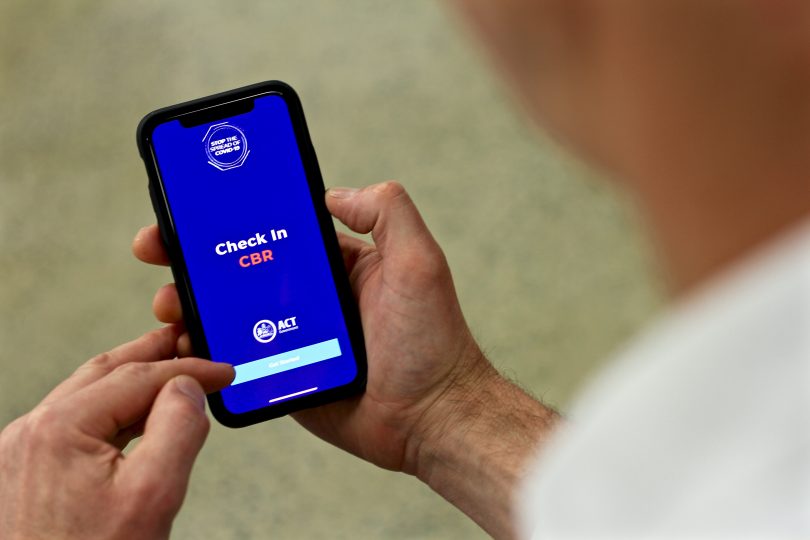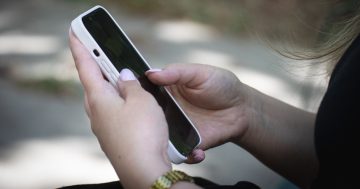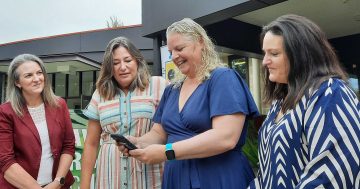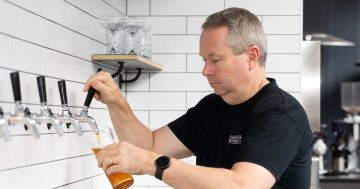
The Check In CBR app. What about those who do not have a smartphone? Photo: Michelle Kroll.
It’s easy for governments to assume in these digital times that they need not bother with ‘outdated’ methods of doing business.
But it’s an assumption that can land them and the community in trouble, particularly during this COVID-19 pandemic.
It’s all very well to mandate checking in with the CBR Check In app wherever you go and slap a $1000 fine on those that don’t, but for those who don’t carry a smartphone or do have one but it is old enough not to be able to install the app, it is not so easy to do the right thing, short of forking out for a new device.
Many venues, including a major supermarket and department store at Woden this week, do not have signs advising of the alternatives, leaving it up to the customer to request counter staff they be checked or signed in if no one is on the door.
Sometimes only a name is being taken, without a phone number, for potential contact tracing.
While ACT Health is praising the app for how it is keeping track of people’s movements, what about those slipping through the net through no fault of their own?
The potential is for carriers to be missed, exposure sites unidentified and the vital chain of transmission to be broken.
While it may seem a burden for businesses to make sure all their customers are checked in, that’s what needs to happen.
Government should be offering support and signage to businesses beyond the now-familiar CBR Check In posters so that when someone without a phone enters premises there is no doubt what they have to do, and that the venue can easily check them in or they can sign in the old fashioned way.
Yes, there is an onus on us all to do the right thing, but it should be made as easy as possible for everyone.
We cannot afford to ignore some people or pretend they do not exist.
The government should also ensure that venues and businesses comply at all levels across the check-in process. For example, a customer should not be able to stroll through many sections of a department store unnoticed.
At least on the ACT’s public transport, used by many who may not have a smartphone, they can use their MyWay card.
But the set-and-forget attitude that seems to be the hallmark of the app system alienates some people and leaves too many gaps.
The temptation to rely completely on digital services and apps to do the work also excludes and disenfranchises sections of the community who, for whatever reason cannot, or choose not to, be a part of a ‘connected’ society.
Even for the tech-savvy, some interactions with service providers and government agencies can be excruciating experiences.
It may be that it is simply a matter of time before all of us do not venture out into the world without the latest device in our pockets, and all our business can be done easily online.
But in the current situation, where assumption has already left us dangerously exposed, the government needs to make sure it has all the contact tracing bases covered.
















